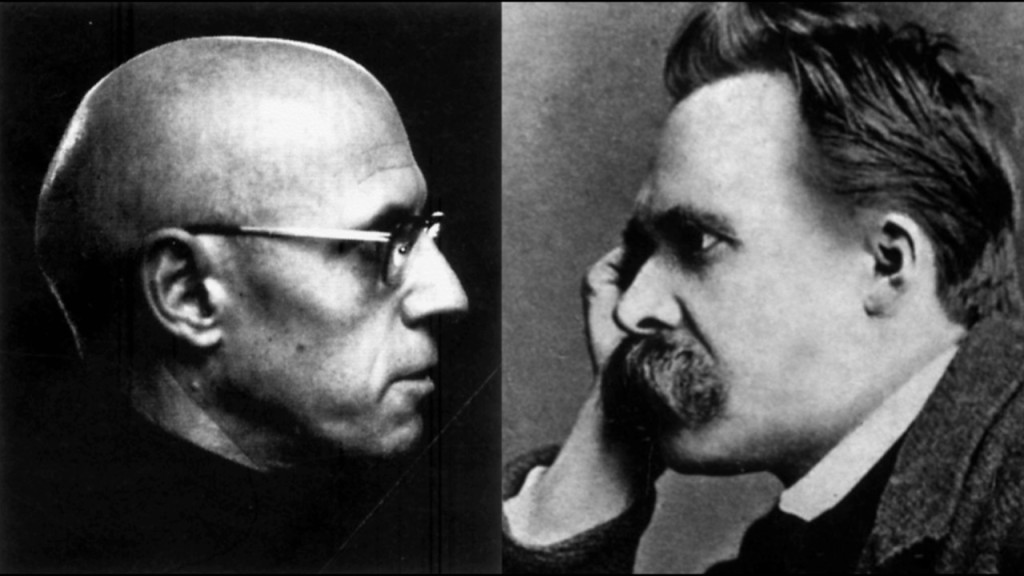Leighton Woodhouse wrote this perceptive piece focused on Foucault’s History of Sexuality, Volume I.
Woodhouse is right that sometimes Foucault offers only descriptive accounts of constitutive power relations. (Like in HS, though even in HS he does not consistently stick to that.) But that’s not the only Foucauldian text.

- Foucault also describes himself as a Nietzschean, explicitly with all that implies for will-to-power, zero-sum valuing, and subjective imposition: “I am simply a Nietzschean, and I try as far as possible, on a certain number of issues, to see with the help of Nietzsche’s texts.” (Foucault Live, Collected Interviews, 1961-1984, ed. Sylvère Lotringer, trans. Lysa Hochroth and John Johnston, 1989, p. 471)
- He explicitly sides with the “proletariat” in the “class war” against our current capitalist masters: “It is clear that we live under a dictatorial class regime, under a class power that imposes itself with violence, even when the instruments of this violence are institutional and constitutional.” And then looking forward to the future, when the proletariat triumph: “it will exert a power that is violent, dictatorial, and even bloody over the class it has supplanted.” (The Chomsky-Foucault Debate: On Human Nature, p. 39).
- He builds (negative) normativity into his epistemology: “All knowledge rests upon injustice; there is no right, not even in the act of knowing, to truth or a foundation for truth; and the instinct for knowledge is malicious (something murderous, opposed to the happiness of mankind).” (“Nietzsche, Genealogy, and History,” in Language, Counter-Memory, Practice: Selected Essays and Interviews, 1980).
- Etc.
Of course there are interpretive issues that lead to different Foucauldian camps with their own emphases, and of course that are Foucauldians who use Motte-and-Bailey strategies in deflecting critiques of their favored thinker.
Related:
SOHO Forum Debate with Thaddeus Russell, Ph.D., on postmodernism and libertarianism.
Chapters 1 and 6 of Explaining Postmodernism: Skepticism and Socialism from Rousseau to Foucault.